Politics, church, and kids: a few things moving taught me, part one
I did it backwards, but the insights remain plentiful
The things I have learned since moving 1200 miles from home seven years ago and the interesting observations I want to talk about are plentiful, so this will be Part One of a many-part series. Read the prequel here, Part Two here, and Part Three here.
Country music is unironically one of my favorite genres — yes, including bro country, yes, including hick-hop, yes, I know everything pre-2000 was objectively better — and besides the usual trucks and beer and fishing and girls or whatever, there's also a lot in there about getting out of the small towns where they were raised and moving to the big city. Making it big, seeing the world, whatever. Like a lot of music, a major theme in country music is getting out of whichever crappy place is holding you down and making something of yourself despite the odds stacked against you. The obvious undertone is that small towns are often neglected and unhealthy, rural life can be suffocating and dull, and escaping them is a priority. (Of course, we also hear plenty of songs about missing or returning to the old farm or small town where they grew up after they realize city life ain't for them, and there’s certainly been a resurgence in country songs that are essentially just anthems about how great small towns and country life are in general.)
I spent most of my life not in a small town, but living in “the city” — where people in these country and other songs wanted to escape. I grew up in Minneapolis, went to public schools in the city, took city busses, rode my bike a few blocks away to the nearest park to play with my friends; it was mostly a pretty standard residential urban childhood! While I couldn’t relate to the songs about small town or country life, I did relate to the feeling of wanting to get away from the “boring” place where I lived, and those songs were basically my anthems in high school. While Minneapolis has pretty much everything you need in terms of cultural and social activities, jobs, education, and anything else you can think of in a decent-sized metro area, it is one of the coldest places in the country for way too many months out of the year. Winter was a major inspiration for my ongoing angst.
I went to “the country" around once or twice a year when we'd visit family in northwestern Missouri, and I hated it. Not the family part, but the country part. There was nothing to do, and anything fun for kids like me took forever to drive to. A trip to Walmart had to be planned in advance, a trip to Target even further. Shopping trips were all-day events if you needed something not carried at the smaller market in town, about a 15-minute drive away.
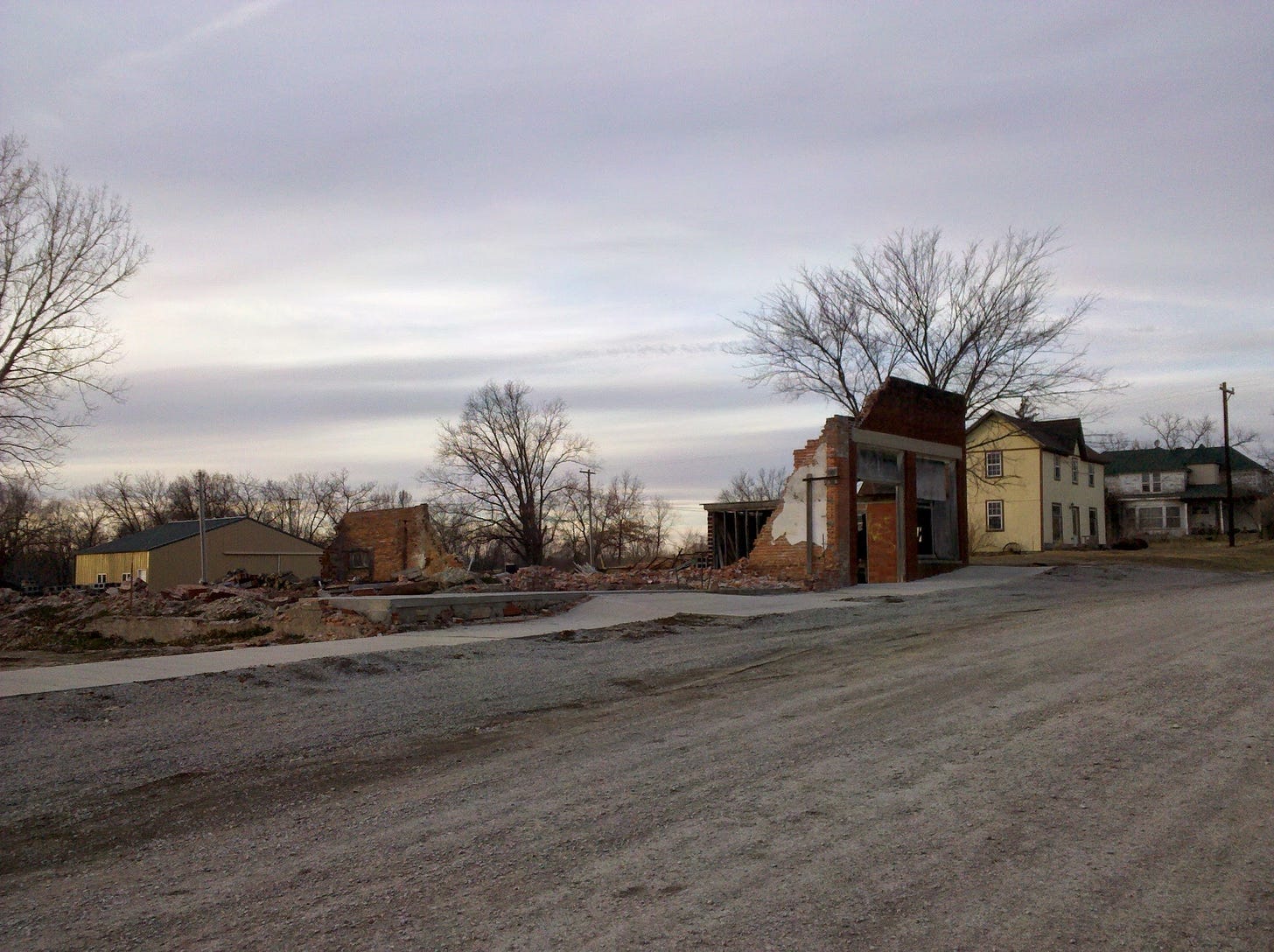
But there was land! So much to play on. Also so much to hurt you, to give you itchy rashes, to hide angry, venomous animals, to make yourself available for tornado attacks. My old puppy, Colesha, was buried out there and I was afraid to walk near her grave marker, and it made me think of it all as death. The country was… dead. The relief and gratitude I'd feel on the way home, seeing the downtown Minneapolis skyline directly in front of us on I-35W before curving right, knowing I was back in the land of civilization, of sidewalks and Targets and pop. Where people talked normal and everything wasn't run-down and old and full of death.
I carried that irrational fear of the country with me for a long time. It wasn't until around 2012 that I started to fight it, rekindling my childhood love of camping, finding reassurance and peace in the country rather than doom and despair. A fear of the country would deeply hinder my new goals, so I did my best to get rid of it.
Another thing about city life is that I'm used to a certain level of liberalness surrounding me. The Twin Cities are one of the most politically blue metro areas in the country, and the state itself hasn’t voted for a Republican president since Nixon in 1972. My friend groups were usually diverse in terms of sexual orientation and gender, and most people I encountered around my age were atheists who didn’t have children and probably didn’t want any. I thought myself something of a rebel for being more left-wing than most of the state and thought the suburbs were bastions of conservative ideology and a dearth of culture.
Then I moved to the South!
In December of 2016, my now-husband got a job offer in Northern Virginia and on a particularly freezing December night after a long day working for too little money, we decided rather spontaneously to make the move. I had been wanting to GTFO of Minnesota for a long time, desiring a warmer climate and longer camping season and generally just a change, and this was the perfect opportunity. I was excited to live in such close proximity to DC, such a monumentally important place in the world, and I saw myself being cool, being an activist and maybe a generally helpful government employee, going to museums and protesting about something, you know, just DC stuff. And I did some of those things! But what I did not do was actually have any kind of DC life like I thought I would; instead, I moved to the country, rather accidentally.
As we settled into our new lives and jobs, we made the decision to live on the outskirts of Fredericksburg. The rent was cheaper than it was closer to DC, family was nearby, my new job was there, and my husband didn't mind the commute (yet). It wasn’t ultra rural, but it was a lot more country than I was used to, and the area was still populated by locals rather than almost entirely transplants, so it felt like it had a culture of its own — something I’d later realize I could not seem to locate the further north and closer to DC I looked (I have a theory about that that I’ll expand on later in this series).
I settled easily into “small town” life. The people were novel to me with their southern accents that they swore they didn't have, and even their bigotries seemed somewhat quaint to me, not really being a target of any of them and able to view them as more of an anthropological curiosity than a threat.
My first job there was in an insurance call center, and training is a couple weeks in a classroom with about 10 or 15 other new hires, so I made a couple friends easily and began to learn more about where I’d moved. Our instructor was a youth pastor who called things “retarded.” I learned that the Redskins weren’t actually Washington State’s other football team, and that a tractor trailer is not, in fact, a John Deere harvester with a U-Haul attached to the back, but is actually what’s known in the rest of the country as a semi truck.
Small things aside, the cultural differences between where I grew up and where I found myself at 33 were stark in many ways. As I left the call center and worked other jobs around Fredericksburg and got to know the nearby bars and their patrons, I learned that people down here marry younger, have kids younger, and go to church a lot more than the folks I hung out with back home.
I think it's fair to assume most people I encounter around here who are older than me are some shade of Republican, and I’ve had to explain the very concept of what it means to be transgender to more than one random bar patron, as one example of the typical social attitude you are likely to find around the area. The military is a huge way of life around here, too, and it’s not unusual to have friendships with an IRL expiration date about 3 years into the future when they get new orders. Back in Minneapolis, I didn't know many people my age who were in the military, and it was a lot more rare to meet someone in their 20s or 30s who'd been deployed. Here, half the reason people come from somewhere else has something to do with the military, whether you're stationed at Quantico or a veteran working as a contractor.
I cannot stress enough the religious differences. In the Twin Cities, you could avoid talk of Christianity, church, or god so easily if you wanted to that it was almost weird when someone did mention it in a way that wasn’t critical. Knowing that just about everyone I meet now has A Church and they are going to try to get me to go to it at least once was definitely a culture shock at first, although now I’m so used to that aspect of public life that I think it’d be a culture shock in the opposite direction upon moving back. Hearing “I'll pray for you" was somewhat of an oddity in my Twin Cities life, although certainly not unheard of. Here, though, that kind of language, praying before eating, and other casual Christian customs are embedded into the culture in ways not often found back where I came from.
This is something I may have thought in a negative light before I moved, but I've really grown to appreciate the kind of comfort and reliability a shared faith can bring to a community. I don’t belong to any, but I sometimes find myself wishing I did.
As a liberal who previously believed myself to be the one with the Correct Views at all times, it's funny to imagine that I needed a lesson in tolerance, but I did, and I got it. As I’ve learned, “tolerance” isn’t just something for conservatives to practice with gay people. I certainly learned that it's a lot easier to be a liberal among leftists — or a leftist among liberals — than it is to be anywhere on the left among conservatives. I wonder if the same is true in reverse? But it takes a special kind of patience to sit in a room full of people absolutely shitting on everything you believe in, and even the mere idea of people with identities like those of some of your friends and family, without routinely clashing with everyone around you. And once Roe was struck down, I felt that clash a lot more intensely than I had before I was the direct target of the general ire of such “traditional” southern values.
Thankfully, recent elections in Virginia will keep abortion safe in the state for another 2 years, at least, but there was a whole perspective shift after Dobbs that I didn’t really see coming. I just don’t want to be here anymore. I miss My People: nerdy atheists (or pagans, increasingly) with goofy accents and liberal Midwestern sensibilities who drink IPAs and go to the cabin in the winter to ice fish and do quirky things for laughs (or because they’re drunk).
While I'm not all that interested in living city life anymore, I have realized that I don't fare well in solitude nor among so few people I can truly relate to, and it's lonely. I guess I’ll have to figure out how to reconcile those two realities. But while I'm still living here in a county that voted for Biden by only half a percentage point, I can find amusement and interest looking at it like a case study of sorts. And it's not as though there aren't benefits: people know how to zipper merge here, and it's more organically racially diverse and integrated than the Twin Cities. People are more direct, but I don’t always find that to be a net positive like many people do. I’m a Midwesterner, and East Coast brashness is not for me, I hate to say it. One can also appreciate that listening to country music in your vehicle loudly enough to rattle nearby windows is an accepted practice that does not result in embarrassment at stoplights. And as a perpetually failing gardener who just won’t stop trying, the longer growing season is certainly nice. Obviously, it’s warmer and winters are much more mild. I was shocked when I found out that some Virginians have winter home in even warmer places. You mean there are people who think Virginia gets cold enough that they have to become a snowbird?! Seven years in and I still can’t get enough of what these people think is cold.
You might also like:
Trailer park children, teenage love, and the lifelong pull of Tidewater
I came here intending to write a post about this relatable meme and my experience spending a day at a school in the South and the interesting observations I had while I was there, but instead, I got lost down Memory Lane for the past few days, nose-deep in old high school diaries and photo albums and came up with… this. Think of it as a prequel to the W…
Revisiting the Idea of Men Holding Doors for Women
As promised, I am revisiting occasional posts from my recently-imported old feminist blog from 2009 - 2012 and updating them with my current perspective and analysis of the topic of the post. The topic of this one, however, ended up sending me on quite a regional-difference tangent, so let’s consider this Part Three of the What I Learned Series. You can…
Why Northern Virginia is so Weird
This is Part Two in my ongoing series about what I’ve learned and observed in my move from Minnesota to Virginia and the interesting cultural differences I’ve noticed between the two areas. You can read the Prequel here, Part One here, and Part Three here





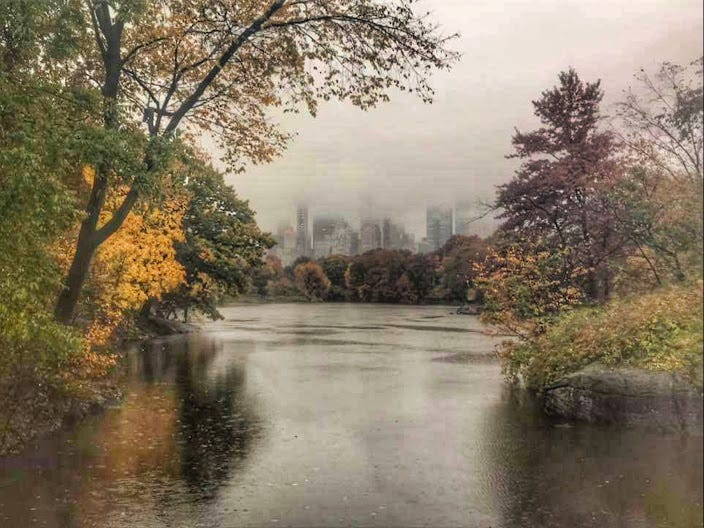
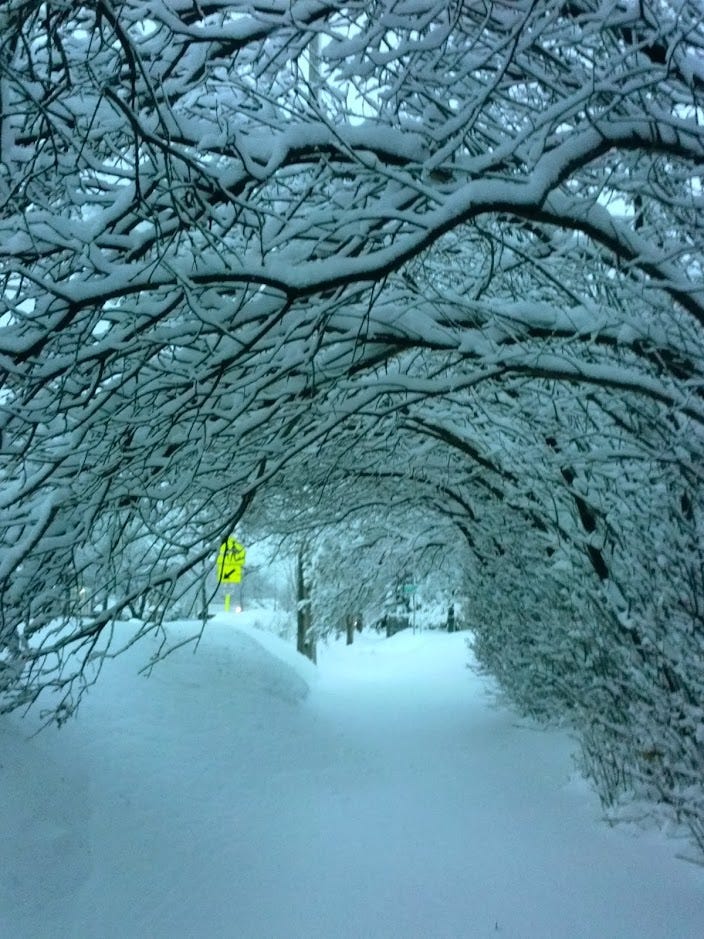
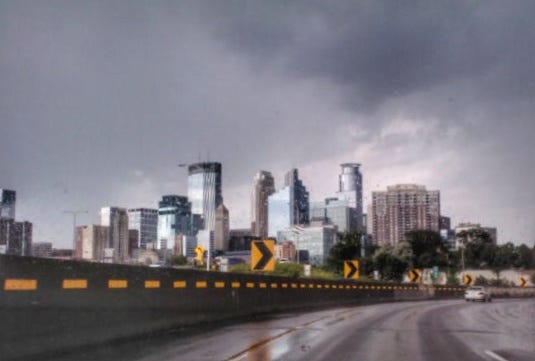

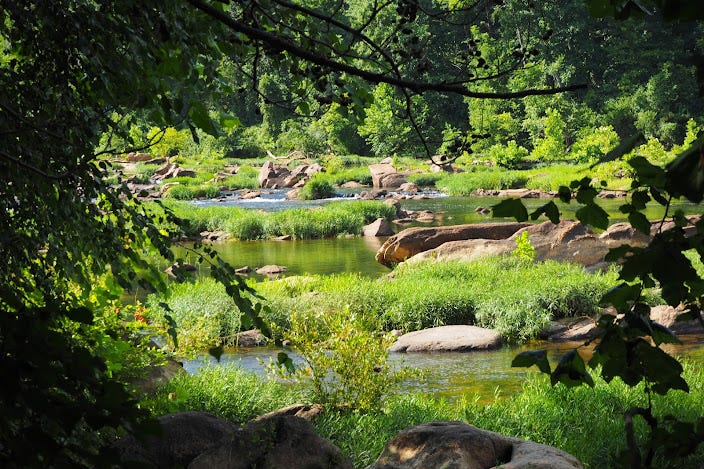
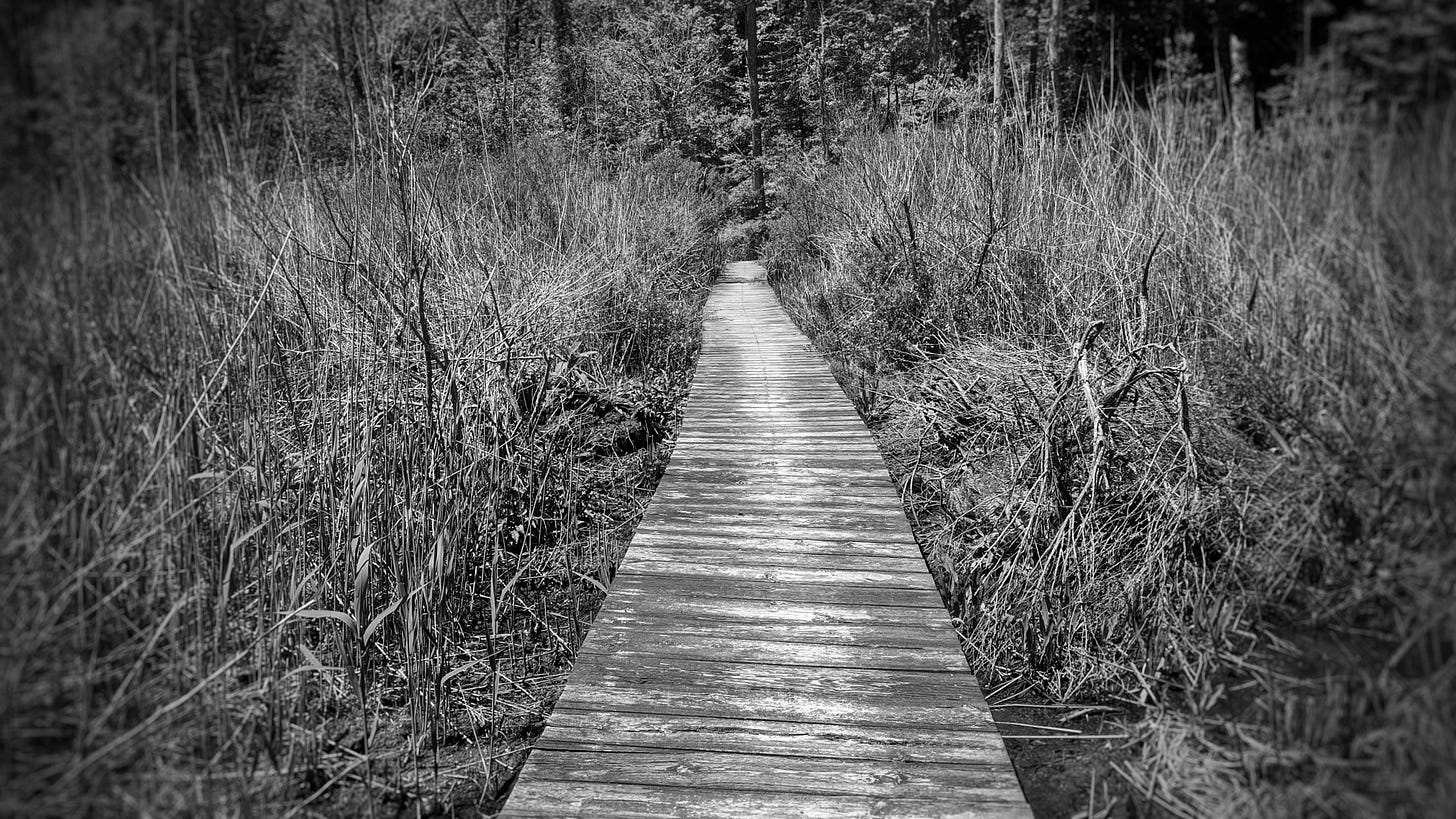

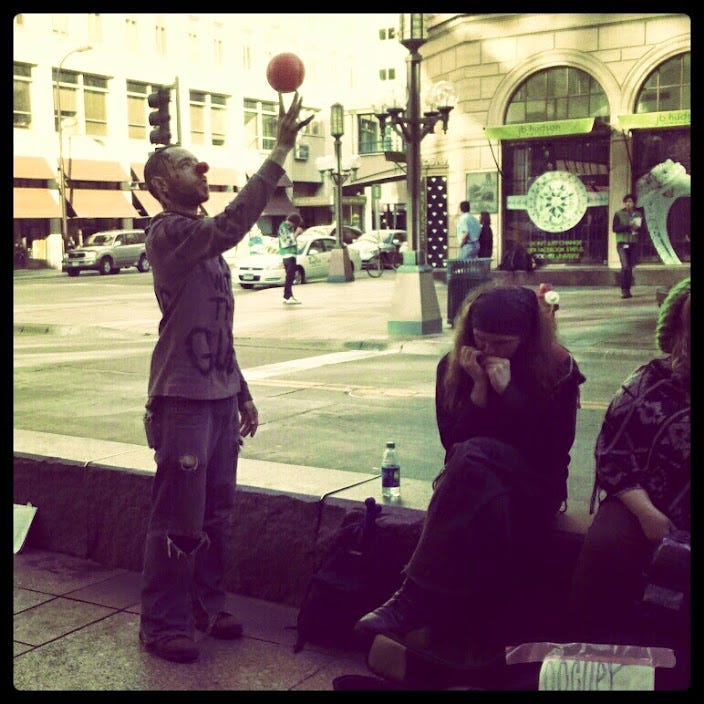
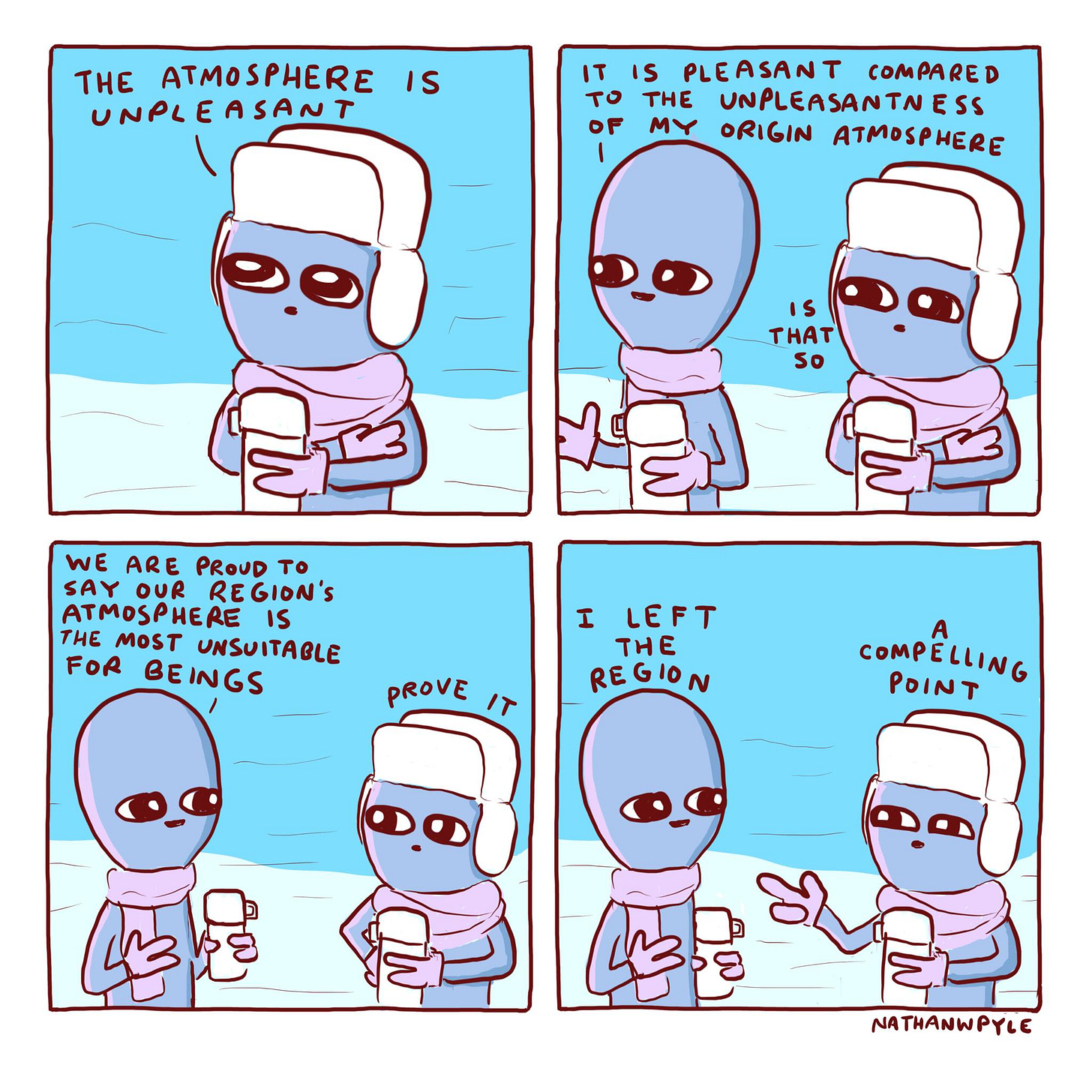



Interesting to read someone’s experience moving to Fredericksburg and experiencing a culture shock—I have the reverse story. I was born in Fredericksburg, but when I was 14, we moved down to Roanoke, in western Appalachian Virginia. If you think Fredericksburg is quaint and Southern, that part of Virginia is way more so!
Actually, NoVa is a region that gets flak from the rest of the state for being “ultra-liberal”—everything really is a matter of perspective, isn’t it?